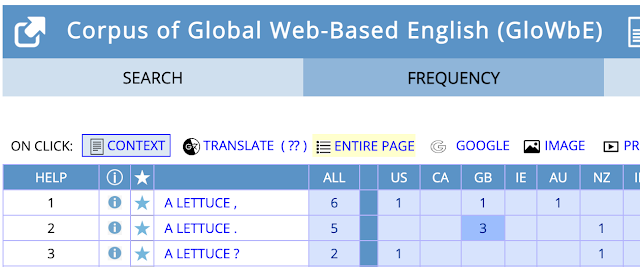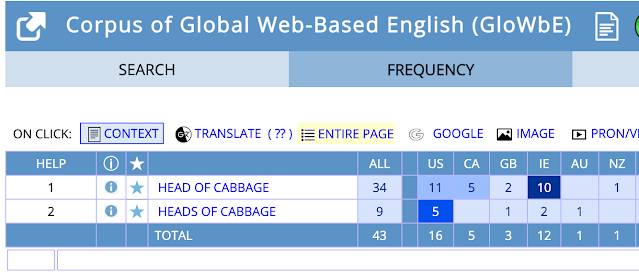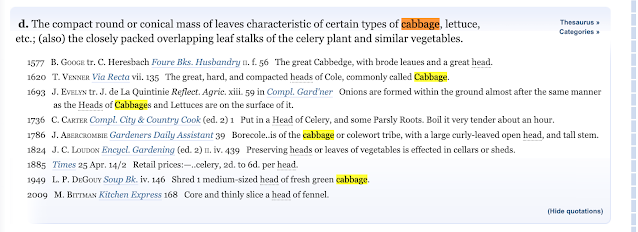Headlines were made when Wikileaks, in their recent targeting of Hillary Clinton, released a transcript of a private speech by Bill Clinton. British news outlets (orig AmE)
zeroed in on a particular passage from the speech for their headlines:
It looks, especially if you speak BrE, like Clinton was making a claim about the sanity level of Jeremy Corbyn (current leader of the UK Labour Party). This is a bit of
headline evil.
Three things conspire here to give Clinton's statement an 'insane' interpretation in the headlines and many of the articles:
- AmE uses mad to mean 'angry', but BrE doesn't so much.
- The maddest is before the noun.
- Some of British newspapers seem to be withholding the American meaning from their readers.
So let's take those in turn.
1. The difference in mad
Mad can mean 'insane' or 'angry' in AmE, but is not as often used to mean 'angry' in BrE.
It's one of those word-uses that America preserved and Britain threw away. Originally
mad was used of animals to mean 'rabid'. By the middle ages, it was used of (non-rabid) people, describing behavio(u)rs like those of a rabid animal: aggression (as if one is angry) or loss of the senses and frenzied behavio(u)r (as if one is crazy). Both senses were brought to America, but by the turn of the 19th century, BrE had mostly stopped using the ‘angry’ sense of
mad. It was still around, though, for instance in the King James
Bible: “And being exceedingly mad against them, I persecuted them even
unto strange cities” (Acts 26:11).
Mad 'angry' was thus one of the first Americanisms that British folk started complaining about. If you think it means 'insane', then using it to mean 'angry' could seem a bit simple, like you couldn’t tell the
difference between feeling angered and losing your senses altogether.
Mad isn't "American for
angry", though.
Angry is how Americans say
angry. The words are near-synonyms, but
mad tends to be used in less formal settings. That it's not completely equivalent to
angry can be seen in their different grammatical behavio(u)rs, which brings us to...
2. The position of maddest
An adjective can go before a noun (attributive use) or on the other side of a verb from the noun it modifies (predicative use), as in:
- She's a happy baby. (attributive)
- The baby is happy. (predicative)
Not all adjectives go in both places. We can say
the baby is glad (about something), but it's weirder to say
she's a glad baby. What you can see from the baby examples is that the predicative use makes
happy a less intrinsic property of the baby. She's happy now, but she might not have been two minutes ago and might not be two seconds from now.
She's a happy baby seems to say something more general about the baby: she has a good disposition.
Now let's try that with
mad:
- He's a mad person. (attributive)
- That person is mad. (predicative)
In BrE, the 'insane' meaning comes to the fore in both cases, since the 'angry' sense isn't in very active use. In AmE, you're very likely to get the 'insane' meaning in the attributive, but the 'angry' sense in the predicative context. (The 'insane' meaning is also possible--but Americans tend to say
crazy when they mean that kind of
mad.) This goes along with the point I was making about
happy in these positions: the more stable trait ('insane') is more likely to go before the noun than the more fleeting emotion ('angry').
In AmE, like BrE, we're used to a range of
mad='insane' phrases with attributive
mad:
a mad man, mad scientist,
the Mad Hatter and so forth.
MAD Magazine has a "crazy" kind of humo(u)r, (AmE)
mad libs is a game of crazy word combinations, and (AmE)
mad money is money that you're free to spend in a crazy way [well, it is now--see first comment for further back!].
Typically, it's easy to
disambiguate mad because the 'angry' meaning is directed at something. You are mad
at someone or
about something. (If you're American and felt that
That person is mad meant 'insane', it's because there was no "something" to be mad at in the context I gave you.) We could call it a "two-place adjective": it has a "subject" (the one who is mad) and (loosely speaking) an "object" (the thing that's causing the anger). The 'insane' meaning generally isn't directed--you're insane or you're not insane, but you're not insane at something. That's connected to the attributive/predicative difference as well: you can fit the 'about/at' information into the predicate position (
I'm mad at the newspapers), but it's harder to do in the attributive position:
The mad-at-the-newspapers linguist is writing this blog.
You can see a similar thing going on with other "two-place adjectives".
He's a proud parent is interpreted as 'He is proud of his child(ren)' because
parent sneaks in the information about the thing that's causing pride. But in
He's a proud person, we get a different interpretation (either 'arrogant' or 'stoic'), because it doesn't tell us what he's proud
of.
3. Clinton didn't mean 'insane', but the headlines were meant to make you think he did
So, what's going on with Clinton's
the maddest person in the room? It looks like it means 'craziest', but...in the full context of Clinton's speech, it clearly doesn't. Here's the relevant passage:
If you look all over the world – the British Labour Party disposed
of its most [inaudible] leader, David Miliband, because they were mad at
him for being part of Tony Blair’s government in the Iraq War.
And they moved to the left and put his brother in as leader because the British labour movement wanted it.
When David Cameron thumped him in the election, they reached the
interesting conclusion that they lost because they hadn’t moved far left
enough.
And so they went out and practically got a guy off the street to be
the leader of the British Labour Party, who I saw in the press today
said that he was really a British citizen and had real British
[inaudible].
But what that is reflective of – the same thing happened in the
Greek election – when people feel they’ve been shafted and they don’t
expect anything to happen anyway, they just want the maddest person in
the room to represent them.
Clinton has set up
mad as being 'mad at the powers that be', and he's repeating it in
maddest to signal that angry people are looking for an angry leader.
The Guardian and
Huffington Post UK both used the clickbait phrase "maddest in the room" in their headlines, but at least had the decency to point out in their articles that
mad can mean 'angry' in American English (and probably meant so here).
The Telegraph and
the Independent (which, I'm sorry to say, gets more and more clickbaity by the minute now that it's no longer a print newspaper) used the headline but did nothing to challenge the impression that Clinton had called Corbyn "the insanest".
Wikileaks has been aiming to sow a particular kind of (clearly partisan) chaos. With headlines like these, the newspapers are only helping them to do it rather than taking a responsible position.
And the guy off the street
While we're here... Clinton's
guy off the street probably also sounds worse in BrE than in AmE. In AmE
the man on the street is the averagely informed person. If you call the person on the street away from the street, they would be a 'man off the street'. That doesn't work quite the same in BrE, where that person is
the man in the street. Here's
Noam Chomsky using
man off the street to mean 'averagely informed Russian':
I don’t know much about Russian public opinion, but I imagine if you
picked a man off the street, he would be surprised to hear a reference
to the Russian invasion of Afghanistan.
A couple of UK readers have suggested to me that they'd interpret
guy off the street as meaning 'homeless man', which clearly (to this AmE reader) wasn't what Clinton intended. The news sites didn't help readers to interpret this one either.
And a few notes before I go
I'd been doing well at blogging on a weekly basis, but the US election results threw me off my routine--and not just because it's left me waking in the middle of the night questioning what kind of world I've brought a child into. I'd been asked by the BBC to go up to Media City to be on
The Verb with Ian McMillan that week. The brief had been to talk about words of 2016--but not politics because everyone would be sick of politics after the election. I prepared some materials and was on my way up north the day after the election, when the producer called to say "given what's happened, we can't
not talk about politics now". So, instead of writing a blog post, I ended up preparing twice for The Verb. If you're interested in hearing it, i
t's available for listening here for 17 more days.
John Kelly wrote a piece on Slate about how we were talking about the election in the days after it, and he quotes me reflecting on what it was like talking to people at the BBC about it that day.
I've been thinking about what to choose for my
US>UK and UK>US Words of the Year. There's a definite frontrunner for UK>US, and there was a frontrunner for US>UK: till I discovered that
dog-whistle (nominated by a couple of you) was first (as far as the OED knows) used in Canada, and then made it big in Australia before going to the US. Now, I've little doubt that the UK media/politicians picked it up from the US, so it might still qualify as US>UK WotY. But if you have better nominations, I'd love to hear them. The criteria are that it should be a word from the US that made it big in the UK this year. That usually means that it made a splash in the media somehow. It should be a long-standing word in the US, not one that was invented this year--so that it's really an Americanism that has shown up in the UK, rather that just "a new English word". Please feel free to post suggestions in the comments.









































